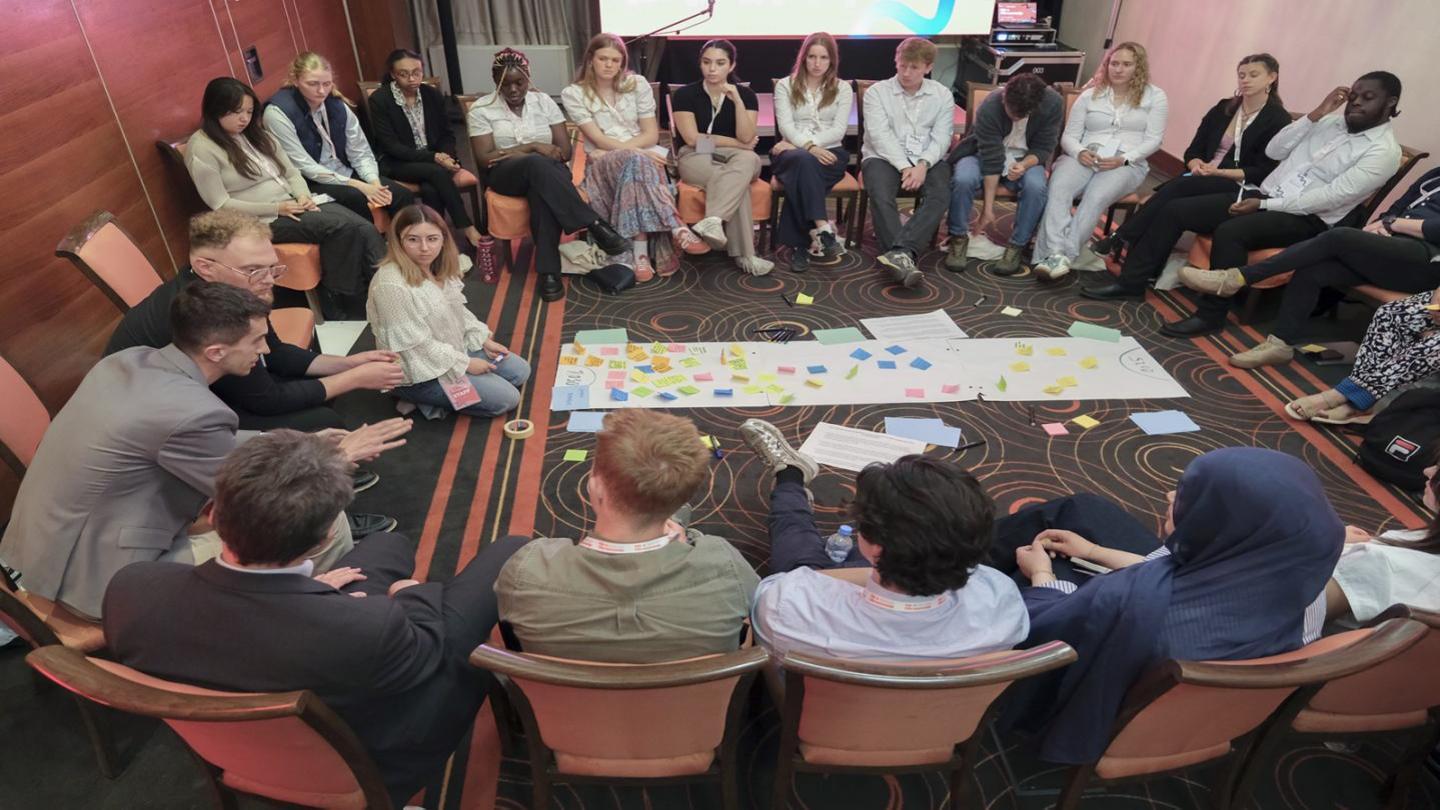Sarajevo, 21 May 2025 – Over 250 educators, youth leaders, and institutional representatives from across the Western Balkans gathered in Sarajevo from 19 to 21 May 2025 to co-develop and adopt a Regional Roadmap for Peace Education—a strategic document that lays the foundation for embedding peacebuilding values across educational systems by 2030.
The event, co-organized by UNFPA and the Center for Educational Initiatives Step by Step as part of the Youth 4 Inclusion, Equality & Trust regional programme, funded by the UN Secretary-General’s Peacebuilding Fund (PBF)—the UN’s primary instrument for sustaining peace - also supported by the Embassy of Italy in Bosnia and Herzegovina through the Moving Us Closer project, and implemented in partnership with the Ministry of Civil Affairs of BiH.
At the heart of the conference was the development of a regional Roadmap for Peace Education, a shared vision that integrates peace pedagogy into all levels of education—from preschool to university. The roadmap focuses on fostering nonviolence, empathy, social transformation through learning, and adapting education systems to demographic and technological shifts, to serve as a strategic tool to guide further action in Bosnia and Herzegovina and the region.
Ingrid Macdonald, UN Resident Coordinator in Bosnia and Herzegovina, opened the conference:
“Investing in peace education today means investing in a more inclusive, just, and sustainable future. It is through education that we can challenge prejudice, heal divisions, and lay the foundation for societies built on dignity and respect for all. Your joint efforts here will not only define the pathway to Vision 2030 but will also establish lasting legacies of peace for future generations. This conference is a testament to the impact of the Peacebuilding Fund—through this regional programme, and other initiatives supported through PBF, we are witnessing how young people and educators are building trust and inclusion across communities and borders.”
Throughout the conference, participants engaged in collaborative sessions to identify concrete activities for improving peace education across all levels of schooling. These discussions also addressed practical challenges and the importance of tailoring approaches to local realities. The active involvement of teachers and educators was recognized as central to shaping purposeful, inclusive education that strengthens social cohesion and reconciliation.
Nedim Krajišnik, Director of the Center for Educational Initiatives Step by Step, underlined this connection:
“Peace and education are synonymous. Both concepts imply empathy, kindness, courage, deep thinking, and those who will serve as ambassadors of peace, and we believe those are teachers. Education is peace, just as peace is education!”
Justine Coulson, UNFPA Representative in Bosnia and Herzegovina, stressed the importance of action:
“Education has the power to transform societies, and it is through education that we can nurture a generation of young people committed to peace and nonviolence. Our goal today is not just to discuss these issues, but to create actionable plans that will guide us toward a future where education becomes the driving force for a more inclusive and peaceful world.”
From the youth perspective, Tijana, a 24-year-old delegate from Banja Luka, shared:
“Working with preschool children in Banja Luka, I see every day how powerful early education can be in shaping values like empathy, respect, and nonviolence. Peace education isn’t just about preventing conflict—it’s about preparing future generations to build kinder, more inclusive communities. This conference gave us, young people, the opportunity to contribute to something that can truly change the future.”
The conference concluded with strong regional commitments to implement the roadmap and continue strengthening education as a driver of peace, resilience, and inclusive development.


